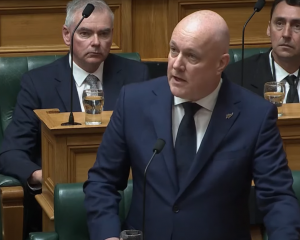
The public has been given just four working days to make submissions on the government's bill to reopen oil and gas exploration off the New Zealand coast.
The time for MPs to consider the bill has also been shortened from the usual six months, because the government wants the amendment law passed by the end of the year.
Public submissions opened today and will close at 11.59pm on Tuesday 1 October, according to Parliament's website.
The bill reverses a 2018 ban on exploring for new oil and gas fields, and makes other changes to make fossil fuel exploitation more attractive.
The Ministry for Business Innovation and Employment (MBIE)'s climate impact assessment found undoing the oil and gas exploration ban would result in an extra 51 million tonnes of planet-heating emissions being pumped into the atmosphere in the years to 2050.
That is almost as much greenhouse gas as New Zealand's economy as a whole produces in a year.
Between now and 2025, MBIE estimated moves by the government to encourage oil and gas extraction would add 14 million tonnes of carbon dioxide emissions to the country's tally, compared with keeping the ban in place - roughly the amount of greenhouse gas New Zealand's cars and trucks produce in a year.
However, the real impact might be lower if an increased flow of fossil gas meant the country could burn less coal, the analysis found.
Having a higher supply of gas - if oil and gas companies had higher confidence to invest in extracting fossil fuels - might mean electricity companies and heavy industry could burn less coal and make electricity supply more stable, MBIE said.
The government said exploration was needed to shore up confidence in the country's future gas supply.
However, energy and resources experts have said there is no guarantee any new gas or oil will be found and/or developed to replace Taranaki's shrinking offshore supply.













